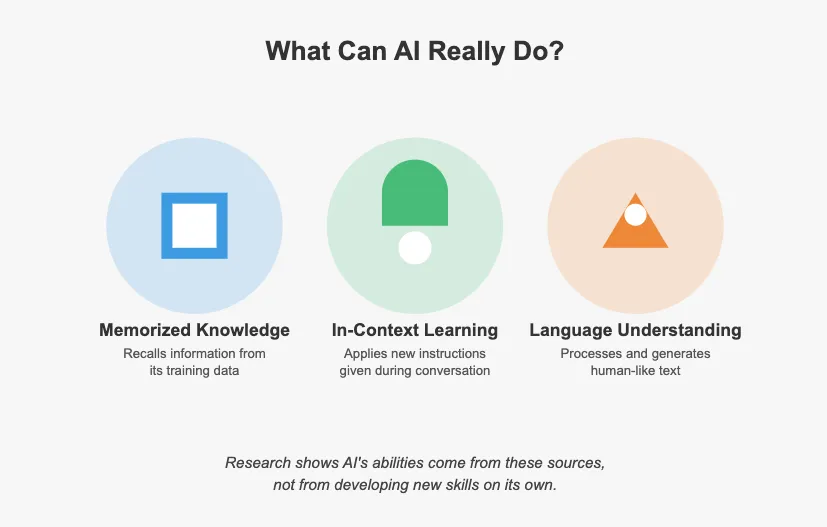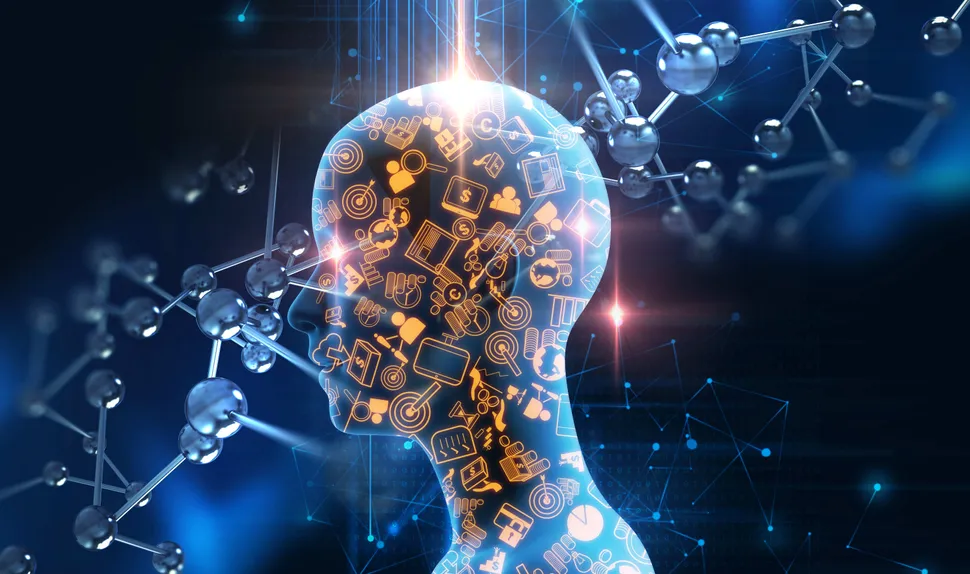Can LLMs teach themselves dangerous tricks? No, say these researchers
While large language models (LLMs) that power today’s chatbots certainly have a way with words, they aren’t a threat to humanity since they can’t teach themselves new and potentially dangerous tricks.
A group of researchers from the Technical University of Darmstadt and The University of Bath ran 1,000 experiments to look into claims that LLMs were able to acquire certain capabilities without having been specifically trained on them.
In their recently published paper, they said their results show that LLMs only seem like they are picking up new skills. The outputs are actually the result of in-context learning (where an LLM temporarily learns how to respond to a question based on a few new examples), model memory (a chatbot’s memory of previous interactions with you), and general linguistic knowledge.
On an everyday level, it’s important for users to keep these limitations of LLMs in mind because if we overestimate their abilities to perform tasks they are not used to, we might not give chatbot instructions that are detailed enough — which then leads to hallucinations and errors.
22 tests for 20 models

(Image credit: Future)
The researchers reached their conclusions by testing 20 different LLMs, including GPT-2 and LLaMA-30B, on 22 tasks using two different settings. They ran their experiments on NVIDIA A100 GPUs and spent around $1,500 on API usage.
They asked the AI models different questions to find out whether they could keep track of shuffled objects, make logical deductions, and understand how physics works among others.
For the latter, for example, they asked the LLMs: "A bug hits the windshield of a car. Does the bug or the car accelerate more due to the impact?"
Ultimately, the researchers found that the LLMs weren’t autonomously picking up new skills, the LLMs were simply following instructions.
An example of this is when chatbots give you an answer that sounds right and is written fluently but doesn’t make logical sense.
Researchers add a caveat
However, the researchers highlighted that they did not look into dangers created by misuse of LLMs (such as fake news generation) and they did not exclude that future AI systems could pose an existential threat.
In June, a group of current and former OpenAI and Google DeepMind employees warned that the loss of control of autonomous AI systems could lead to humans becoming extinct. They said AI companies “possess substantial non-public information about the capabilities and limitations of their systems” and called for more transparency and better whistleblower protections.
The findings were also based on current-generation models, dubbed "chatbots" by OpenAI. The company says next-generation models will have greater reasoning capabilities and in the future will have the ability to act independently.
- Karlston, Mutton and Adenman
-

 3
3



Recommended Comments
Join the conversation
You can post now and register later. If you have an account, sign in now to post with your account.
Note: Your post will require moderator approval before it will be visible.